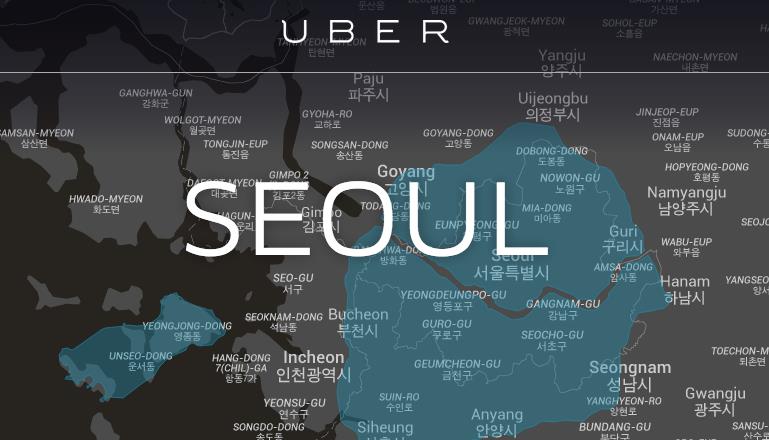The Korean lawmakers have been pushing their efforts in exterminating ridesharing service Uber from Korea. Last week, the ruling Saenuri Party’s No-Keun Lee submitted a bill that would legally ban Uber services in South Korea, if passed.
The current law only prohibits unlicensed cab drivers and not the service providers such as Uber that connect the customers to the drivers. The new bill would additionally apply to parties that provide unlicensed transportation services to riders using information technology. Violators would be fined up to $18,000.
South Koreans are already accustomed to different varieties of transportation services. In addition to traditional taxis, South Koreans have access to on-demand call taxis and designated “chauffeur” services for those too drunk to drive. Nevertheless, Uber seems to appeal to South Koreans. Despite numerous options available, the South Korean population, like the many others in other countries, is reacting positively to Uber.
Uber distinguishes itself from traditional taxi services in that it gives passengers the freedom to customize their experiences. Users can choose drivers according to their ratings given by previous riders. Uber also offers two different services in Korea, Uber X and Uber Black. Uber X offers a range of vehicles from Hyundai Sonata to BMW 5 Series. Uber Black offers Hyundai Equus and Mercedes E Class.
Uber provides convenient methods of payment and finding available vehicles. When the trip is complete, Uber automatically charges the credit card the users pre-register on the app. Uber is especially convenient for those in a rush to find a cab or during hours when cabs are hard to come by on the streets. It saves time by sending vehicles within minutes, providing door-to-door services.
Although those against Uber argue that it proposes safety concerns, Uber’s real-time GPS system provides a tracking system that resolves such problems. From the moment the user requests for a driver until the trip is complete, users can track the location of the vehicle using the real-time GPS system.During the ride, the passenger can track the route right on the app. In addition to route tracking, the rider can share his or her ETA and location on social media or with friends.
The Korean lawmakers and officials seem to be more concerned with the decreasing use of licensed taxis and the safety issues carsharing services provide, rather than the interests of the passengers. But services like Uber offer transportation services that attract the passengers looking for more customized, comfortable, and user-friendly services.
On October 21, 2014, the City Council of Seoul made a pre-announcement of a legislation that will award about $200 to those who report any unlicensed taxi operators.
Source : Bill to Ban Uber in South Korea







Leave a Comment